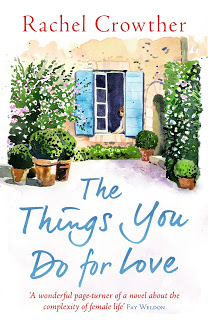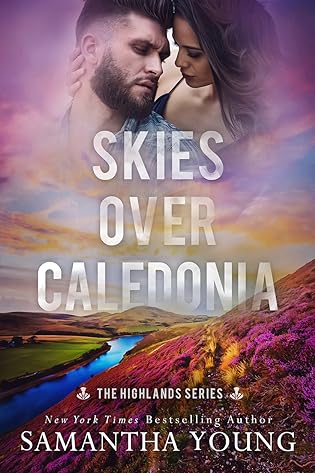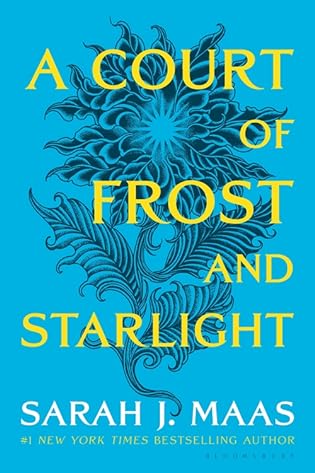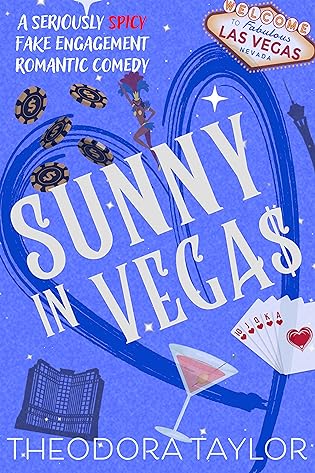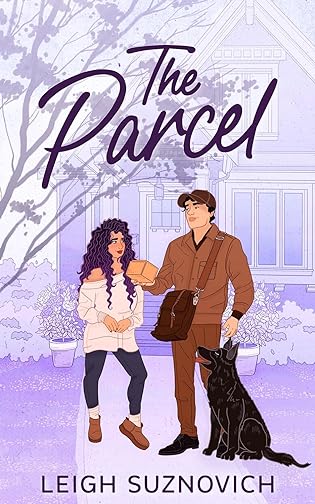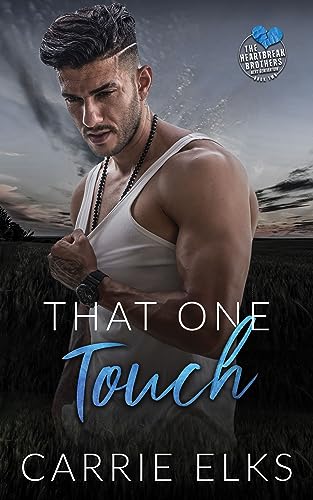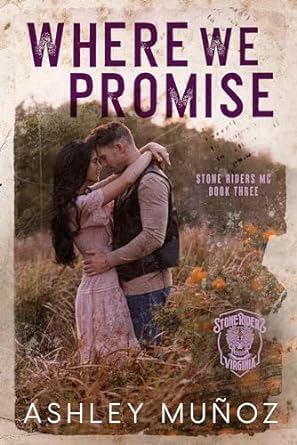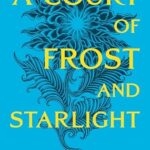Jul
with Author Rachel Crowther. Rachel Crowther is the Author of the new book ‘The
Things You Do for Love’ coming on August 11th. ‘The Things You Do for Love’ is
perfect for women’s fiction readers and for those who are looking for a truly
exhilarating book. Find out more about this new read and the author!
About the Book:
page-turner of a novel about the complexity of female life, by a new writer who
– Fay Weldon
An elite surgeon with a brilliant but philandering husband, Flora Macintyre has
always defined herself by her success in juggling her career and her marriage.
Until, all at once, she finds herself with neither.
Retired and widowed in the space of a few months, Flora is left untethered. In
a moment of madness, she realizes there’s nothing to stop her running away to
France.
But back home her two daughters – the family she’s always loved, but never had
the time to nurture – are struggling. Lou is balancing pregnancy with a
crumbling relationship, while her younger sister, Kitty, begins to realize she
may have to choose between love and her growing passion for music.
And even as the family try to pull together, one dark secret could still tear
them all apart…
best sort of fiction that makes you really MIND about those people who you have
only just met but whose existence throbs with vitality.” Juliet Nicolson,
author of A House Full of Daughters understands it all too well. You can have
it all, but only if you’re prepared to pay the price.’
The Q&A:
some cases other important things (like writing!) has always been an
interesting topic for me – in fact, it’s more or less the central preoccupation
of my life, both in theory and in practice.
make is part of the way I try to make sense of life, and although most of my
friends are still very much in the thick of looking after children and/or
ageing parents while managing demanding jobs, and in some cases challenging
marriages, I’d been thinking for some time about what highly successful and
overstretched women might do when they retired.
and the related question about mothers and daughters and how their
relationships change as the daughters grow up and start to face some of the
same challenges as their mothers. I wanted all along to make this a
multi-generational novel, in which we see things – such as Flora and Henry’s
marriage, and Lou and Kitty’s childhoods – from both perspectives.
going to end before they even start writing. Is this true for you?
training, and quite well organised and analytical about my writing – I keep
track of my novels in rather scientific-looking tables as I go along – but (rather
weirdly, perhaps) I’m absolutely not one of those novelists who plans the whole
plot out in advance. I’m rather in awe of people who do that – but I also think
I’d find it rather boring to know exactly what was going to happen from the
outset.
and the questions keep multiplying faster than I can answer them for most of
the time I’m writing: I simply don’t know the answers until they come to me,
and often that’s worryingly late. But somehow they always appear in the end. I
once went to a talk by Andrew Miller, who said you write the first draft to get
to know your characters, and the second draft to make sense of what they do,
and that was very reassuring.
not being sure whether the whole thing is going to fall into place, but for me
that’s part of the fun – and I think you just have to trust the process and
keep going, a bit like you do as a reader. I think the difference between
writing a novel and reading a novel is a bit like the difference between
reading a novel and watching a film. In each case, both experiences are fun,
but the additional time and effort you put in is more than worth it for the
additional pleasure!
finished the novel – are they still in your head?
who’ve been in novels, and often the ones from short stories, too. They feel
like real people: sometimes I wake up in the night thinking about one of them,
and it takes a moment or two before I realise they’re fictional characters, not
friends or relations.
years, to a place where we used to live, and where I’d written a crime novel
(which was never published, but which lots of my friends read at the time). As
we were walking down the street recalling the people we used to know there and
wondering what had happened to them, I found myself thinking about the
protagonist of that novel. It was rather nice to know that she was still there
for me to pick up and think about even now.
particular reason for this? Do you have a special connection with France?
there over the years. French is the only foreign language I can speak at all
competently, and I’ve probably visited and stayed in as many different and
varied parts of France as of Britain.
particular link with France, since it first
took shape in my mind when I was on
holiday there a few years ago. We stayed in several different places, including
a sweet little gite in the garden of
a house that belonged to an English couple in their sixties. The woman was
called Flora, and although she is nothing at all like the Flora in my novel, I
knew that a village like theirs was the right setting for this novel I’d been
thinking about all summer, and I decided that Flora’s name was perfect for the main
character.
real people they know or have met? Do you do this?
impossible. Of course characters sometimes resemble real people, or more often
have a mixture of traits and characteristics from several different real
people, but I’ve tried once or twice to base a character properly on someone I
knew and I found it terribly constraining. You have to think all the time about
whether the real person would do or say such and such, whether they’d ever get
themselves into this situation, whether they’d react like that – and all of
that bogs down the plot, and wrecks the glorious freedom of writing a novel.
predetermined notion of who they are: writing about them is more a matter of
finding out about them and getting to know them than dictating what they’re
going to be like. Even if you start out with a rough idea, you find yourself
veering away from it pretty quickly, and discovering things you didn’t expect.
And that’s what you need: you need characters who have their own internal
consistency, and who belong in the world of the novel, not real people you
plonk down like cardboard cut-outs in a fictional setting.
unsurpassable both as a story and as a piece of writing: you know you are in
the hands of a genius from the first sentence. The characters are vivid and
varied and evoke powerful emotions, the plot is unbearably sad and then
unbearably happy, the portrait of early nineteenth century English society is
fresh and compelling. It would be hard to care more deeply about any character
than Anne Elliot, and Jane Austen manages brilliantly the trick of making a
novel which focusses on a small section of life address much bigger and broader
questions – about self-determination, whether virtue is rewarded, how different
women really are to men, and what matters most in life: money, love, health,
adventure, freedom. The fact that Persuasion
was published posthumously is poignant too.
who aspires to become an author?
anyone who wants to write, but I’m
less sure about recommending them as a route to ‘becoming an author’. I did
lots of creative writing courses over the five or six years when I was still
working as a doctor and was desperate to find the time and space and focus to write.
I enjoyed most of them, and in certain ways they were useful, but I never saw
them as a route to publication, and I think going into them for that reason
that would be a mistake – partly because no course can promise to turn you into
a publishable author, but mainly because, in my humble opinion, writing is more important than ‘being an author’.
course I did was an Arvon week with Sarah Salway and Jean McNeil. I’d written
quite a lot already – in fact, I’d just won a prize in a short story
competition – but even so, that week felt like a revelation. It was partly the stimulation
of the writing exercises and the feedback from the tutors; it was partly having
a whole week with nothing else to do but write; it was partly meeting a dozen
other people who were in exactly the same boat as me – but the most important
thing I learned that week was that writing was really, really important to me,
and whatever else happened, I was going to go on doing it for the rest of my
life.
it seems to me that writing is a bit like running. Other people can help you
train, and give you useful tips about what to eat and how to get fit and what
challenges to set yourself, but in the end it’s your own hard work (and a
degree of natural aptitude) that matters. And most people run because they love
it and feel better for it, and perhaps enjoy entering races to pit themselves
against other people, not because they think they’re going to win an Olympic
medal. I’m not among those who believe that running improves everyone’s life,
but I’m perfectly prepared to believe that writing could.
writer?
what might seem an unhelpful answer! – is writing. For me, there’s nothing to
beat the pleasure it brings. And that goes for every part of the process: the
excitement of the first tingling of an idea, the initial drafting that spills
it all out on paper (or screen), the endless revising and editing that turns it
into something worth reading.
of those elements is – imagining something, sketching it out, then knocking it
into shape. It’s hard to explain, too, what you’re doing it for. It’s certainly not the satisfaction
of sitting back admiring the finished product – however much I’ve loved writing
something, and however proud I am of it, I’m itching to get on with the next
project as soon as it’s finished, or even before. (I’m not one of those orderly
writers who has a decent gap between novels: rather like children, I always
have at least two or three on the go, at different stages of development.)
worthwhile: in fact, each of them have their frustrations as well as their
pleasures. When the idea is germinating, there’s the anxiety that you’ll lose
sight of the spark that first appealed to you, or that you won’t be able to see
it through into anything remotely resembling a novel. When you’re drafting,
there’s a sinking feeling that the writing isn’t good enough, or isn’t going in
the right direction. And when you’re editing, there’s a niggling sense that
what you’re doing isn’t really at all creative, and that anything that takes
this much chopping and reshaping is never going to have any sparkle. But somehow
the whole process is utterly compelling and irresistible, and I can’t imagine
living without it.
it?
used to scoff at writer’s block. I remember being in a workshop once with
someone who was finding it hard to decide whether he’d write better if he’d
already been to the gym that day, or whether having the gym as a reward to look
forward to would make his writing time more productive. I was incredulous: you
mean, you’re choosing to spend time in the gym when you could be writing?
You’ve got time to write and you’re not getting on with it as fast as your
typing fingers can carry you? Me, I have to make the most of every minute I
have! I don’t have time for luxuries like writer’s block!
began to understand. If you’ve got all day every day to write (and that’s still
not me, I fear) you’re not going to be actually writing every minute of every
day. You need thinking time, planning time, digesting time – even panicking,
despairing time. If you spend most of the week waiting for the glorious empty hours
you’ve carved out to write, you’re more likely to hit the ground running, but
even then you may not be able to pick up the thread at once. If you’ve had to
break off to edit something else, or to deal with a crisis of some kind, you
might find it difficult to immerse yourself in whatever you’re writing again –
and sometimes, in the middle of a long project, the whole thing just feels
stale and flat and worthless, and you just can’t see the point.
block, and they have different remedies. If you’ve lost your place, going back
to the beginning and reading through from page one again often helps you to
work your way back into it. If you’ve written yourself to a standstill, maybe
that’s the time for a dog walk (or even, if you’re so minded, the gym). If
you’re in the doldrums, writing something else might help – or even leaving the
place where you’re stuck and leaping on to another point in the book, an
episode you’re more excited about. But in the end, I take a pretty brisk tone
with myself: if you’re serious about writing, then write. Write anything – get
some words down – and it’ll help you move forwards.
lots of books about writing which have been recommended to me over the
years, and now and then I take one on holiday with me, thinking it might have
useful things to say, but I’ve never actually managed to read any of them. I’m
sure that’s my own failing, but in the end I find I’d rather read a novel than
a book about writing novels.
marvellously, spend an afternoon listening to Anne Enright talking about
writing, and told us that for each novel she’d written, she’d had a particular
novel by someone else to hand all the way through – a sort of totem, or guide,
or reference point, I think. I haven’t followed that advice exactly, but I have
found it very helpful to delve into other people’s writing when I’m struggling
with my own. Not to copy them, or to look for anything in particular, but more
to remind myself what I’m trying to do, and why it’s worth the effort.
About the Author:
 Rachel Crowther qualified as a doctor and worked in the
Rachel Crowther qualified as a doctor and worked in theNHS for twenty years before succumbing to a lifelong yearning to write fiction,
previously indulged during successive bouts of maternity leave. She has an MA
in Creative Writing with distinction from Oxford Brookes, and a string of
prizes for her short fiction.
a Tatler ‘sizzling summer read’. ‘The Things You Do For Love’ is published in
August 2016 and has been called ‘a delight of a read’ by Fay Weldon, ‘the very
best sort of fiction’ by Juliet Nicolson (A House Full of Daughters) and ‘a
richly textured tale of life and love’ by Richard Mason (The Drowning People).
Rachel has five children, two mad dogs and an abiding passion for music, art,
cooking and travel, both in Britain and further afield. She currently lives in
Surrey.
her website. Or visit her on Facebook and Amazon.
received this book from Bonnier
Publishing in exchange for my honest review.
You might also like:

Maureen is a mom, wife, nurse, and Ravenclaw living in the Netherlands. She spends her days juggling mom-life, reading, blogging, planning date nights with her husband and working as a nurse. Maureen also is a big Anglophile, loves cooking, Gilmore Girls, Bridgerton and Harry Potter.. Always! Facebook | Instagram

